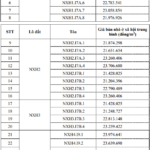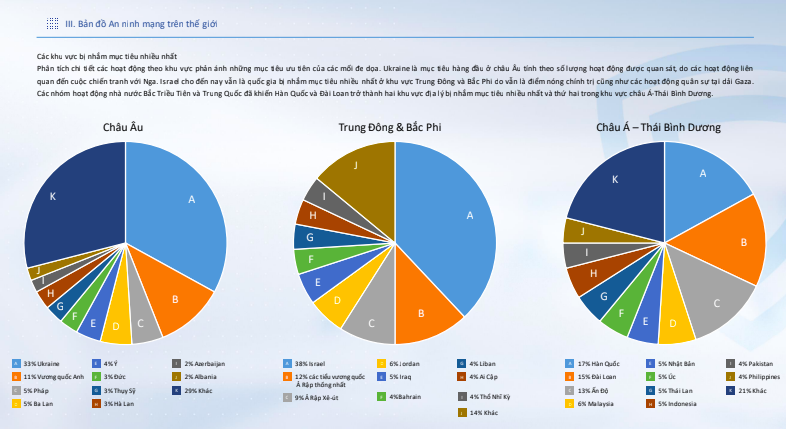According to the Ministry of Labor – Invalids and Social Affairs, the labor market is continuing to recover, with the number of employed workers increasing compared to the previous year.
DIFFICULT TO RECRUIT WORKERS EARNING THOUSANDS OF USD
However, there is still a low number of skilled workers, and workers who have been trained in various forms still have low levels of qualifications and certifications. This is a challenge in forming a high-quality labor force.
By the end of 2023, the proportion of workers who have been trained is expected to reach nearly 70%. However, the proportion of workers who have been trained and have qualifications and certifications will only reach 27-27.5%. On the other hand, the demand for high-skilled workers is always high in the business sector, despite the decline in the labor force in some other skill segments.
The recruitment trends mentioned in the Q4/2023 labor market report recently published by the Ministry of Labor – Invalids and Social Affairs have somewhat confirmed this observation.
According to the report, the highest proportion of labor recruitment requirements for workers with university degrees or higher accounted for 53.7% of the total recruitment demand of businesses in Q4/2023. At the same time, there was a significant difference compared to other skill groups, such as a requirement for no technical specialization accounting for over 7% and a requirement for college, intermediate, and basic levels accounting for less than 40%.
Based on the practical experience of providing intermediate labor supply services to businesses, including many FDI businesses, Mr. Trinh Quang Thieu, Director of Thien An Investment and Labor Development Trading Co., Ltd., said that the need for high-skilled workers is still very high, especially in fields related to information technology, mechanics, electricity, and electronics.
For these positions, businesses often search for partners who can provide workers at average salaries ranging from $800 to over $2,000, depending on their abilities. “Professional skills, qualifications, and foreign languages are the three factors that if workers can meet, businesses are always willing to pay very high salaries,” Mr. Trinh Quang Thieu said.
Admitting that Vietnam is currently lacking high-skilled workers, Mr. Do Duc Chi, Deputy General Director of Nhan Kiet Labor Supply Co., Ltd., believes that this is partly due to the training process in the past.
According to Mr. Chi, in practice, when FDI businesses have a need to invest and open factories in Vietnam, they always pay attention to the human resources, but when conducting interviews and recruiting highly-qualified labor, it is very difficult. “Clearly, current training methods have not met the actual needs of businesses that have a demand for high-skill labor,” Mr. Do Duc Chi said.
And it is obvious that when high-quality local labor cannot be found, FDI businesses are forced to recruit foreign labor to perform high-quality tasks that meet production needs.
“I know that the majority of FDI businesses, when recruiting personnel for important positions, mainly hire foreign workers. This is a very sad situation for the current high-quality labor force in Vietnam,” Mr. Chi worries, and believes that this is a matter that requires great attention in order to train a labor force that can meet the high requirements of businesses.
FOCUS ON TRAINING FROM THE BEGINNING
According to experts, not only is there a shortage of quantity, but quality and discipline to form a high-skilled labor force will also be important issues to focus on. Deputy General Director of Nhan Kiet Labor Supply Co., Ltd., Mr. Do Duc Chi, believes that one of the limitations of Vietnamese labor is discipline.

As an intermediary labor supply unit for businesses, including many FDI businesses, Mr. Chi said that the unit has received feedback from partner businesses that when some of our workers start working at these businesses, their discipline is not high and their work efficiency is low. Meanwhile, these are factors that businesses highly value along with qualifications.
In addition, the training and practical process requires many workers to be retrained in professional knowledge, which, according to Mr. Chi, is also an issue that needs improvement in the future.
For the Ministry of Labor – Invalids and Social Affairs, in the Implementation Plan for implementing Resolution No. 06/NQ-CP of the Government on developing a flexible, modern, efficient, sustainable and internationally-integrated labor market to quickly recover the economy and society, training high-quality human resources continues to be emphasized as one of the important tasks.
Accordingly, the Ministry of Labor – Invalids and Social Affairs stated that training work will be more closely linked to the labor market, in line with the country’s economic and social development stages and international integration.
In particular, emphasis will be placed on training, retraining, and improving the skills of workers to meet the requirements of the Fourth Industrial Revolution; actively building training programs to enhance qualifications and vocational skills for workers to meet the demands of businesses.
The development of human resources, especially high-quality human resources to meet the development requirements of industries and sectors, will continue to be promoted…




































